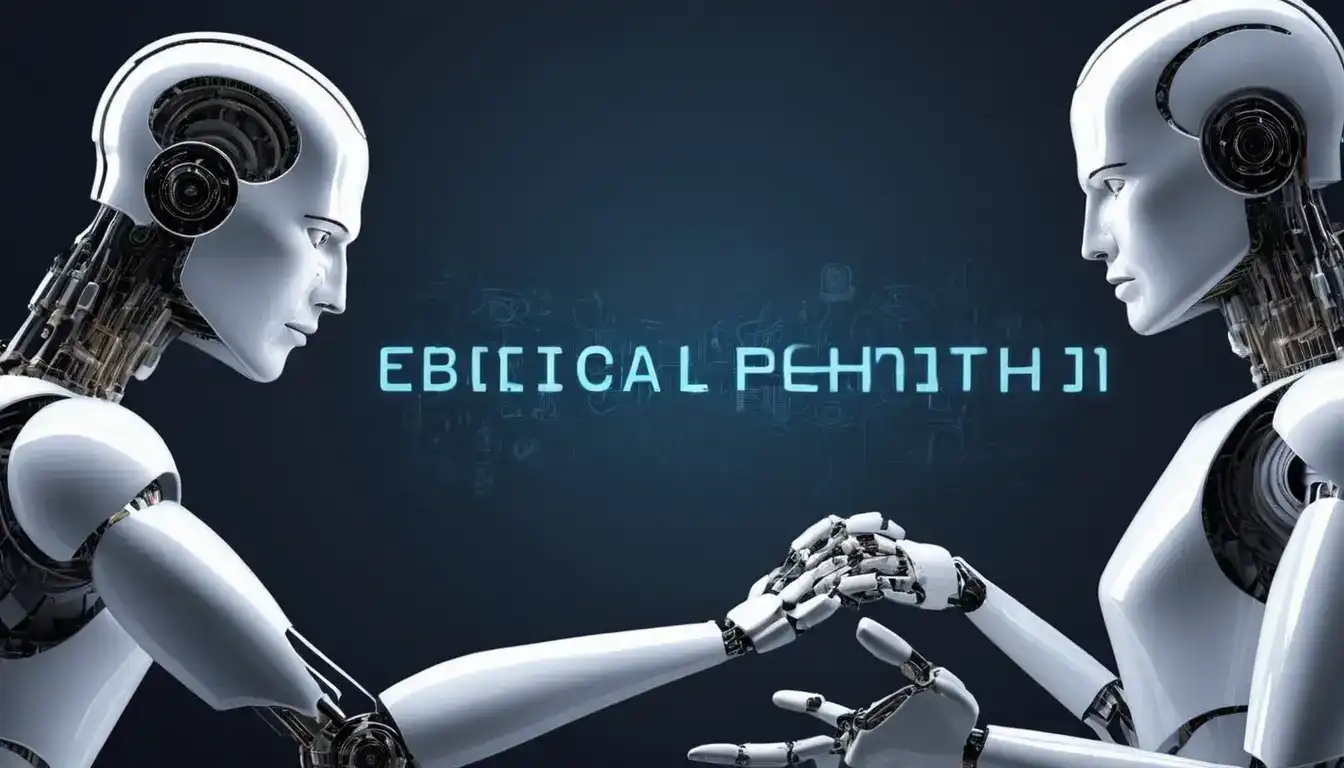What is Blockchain and How does it Work?
Emily Willis

Photo: What is Blockchain and How does it Work?
Blockchain technology has garnered significant attention in recent years, touted as a revolutionary innovation with the potential to transform various industries. Understanding what blockchain is and how it functions is essential for grasping its implications and applications in today's digital landscape.
Understanding Blockchain Technology
At its core, blockchain is a decentralized digital ledger that records transactions across multiple computers in a way that is secure, transparent, and immutable. Unlike traditional centralized systems where a single entity (like a bank or a company) controls the ledger, blockchain operates on a distributed network of computers (nodes) that collectively maintain the ledger.
Key Concepts of Blockchain
1. Decentralization
Blockchain eliminates the need for a central authority by distributing the ledger among network participants. Each node in the network maintains a copy of the entire blockchain, ensuring transparency and resilience against tampering or fraud.
2. Cryptographic Security
Transactions recorded on the blockchain are secured using cryptographic techniques. Each transaction is digitally signed to verify its authenticity, and once recorded, it cannot be altered retroactively without altering all subsequent blocks, making blockchain immutable.
3. Consensus Mechanisms
To add new transactions to the blockchain, network participants must agree on its validity through a consensus mechanism. Popular consensus mechanisms include Proof of Work (PoW), Proof of Stake (PoS), and variations like Delegated Proof of Stake (DPoS) and Proof of Authority (PoA).
How Blockchain Works
1. Transaction Verification
When a transaction is initiated, it is broadcasted to the blockchain network. Nodes validate the transaction using predefined rules and verify the sender's digital signature.
2. Block Formation
Validated transactions are grouped into blocks, each containing a timestamp and a reference to the previous block (forming a chain). Blocks are then broadcasted to the network for further verification.
3. Consensus and Block Addition
Nodes in the network compete to solve a complex mathematical puzzle (Proof of Work in Bitcoin's case) to add the next block to the blockchain. Once solved, the new block is appended to the existing chain, and the transaction becomes part of the permanent, transparent ledger.
4. Immutable Record
Once added, a block cannot be altered without altering all subsequent blocks, due to the cryptographic hash function linking each block to its predecessor. This immutability ensures transparency and trust in the integrity of the blockchain.
Applications of Blockchain Technology
1. Cryptocurrencies
Blockchain technology gained prominence with the advent of Bitcoin, the first decentralized cryptocurrency. Blockchain enables secure, peer-to-peer transactions without the need for intermediaries like banks, revolutionizing the financial landscape.
2. Supply Chain Management
Blockchain enhances transparency and traceability in supply chains by recording the provenance and movement of goods. It enables stakeholders to track products from origin to destination, reducing fraud, enhancing efficiency, and ensuring ethical sourcing.
3. Smart Contracts
Blockchain platforms like Ethereum facilitate the creation and execution of smart contracts, self-executing contracts with predefined rules. Smart contracts automate and enforce agreements without intermediaries, streamlining processes in various industries.
4. Digital Identity
Blockchain can secure and manage digital identities, providing individuals with self-sovereign identities that are portable and verifiable. This can mitigate identity theft and streamline access to services requiring identity verification.
Challenges and Considerations
While blockchain offers numerous benefits, several challenges must be addressed for widespread adoption:
Scalability: Current blockchain networks face scalability issues, limiting transaction throughput and speed.
Regulatory Uncertainty: Regulatory frameworks for blockchain and cryptocurrencies vary globally, impacting adoption and compliance.
Energy Consumption: Proof of Work consensus mechanisms consume significant energy, prompting efforts to develop more energy-efficient alternatives.
The Future of Blockchain
Blockchain technology continues to evolve, with ongoing research and development focused on scalability, interoperability, and sustainability. Emerging trends like blockchain interoperability, enterprise adoption, and decentralized finance (DeFi) indicate a promising future for blockchain's role in reshaping industries and economies globally.
Conclusion
In conclusion, blockchain technology represents a paradigm shift in how digital transactions and data are managed, offering unparalleled security, transparency, and efficiency. By decentralizing trust and enabling peer-to-peer interactions, blockchain has the potential to redefine industries beyond finance, empowering individuals and organizations to innovate and collaborate in new ways.
Latest ✨
View AllArtificial Intelligence (AI) has evolved rapidly from science fiction to reality, offering immense potential but also presenting significant ethical challenges.
Emily Willis
Virtual reality (VR) and augmented reality (AR) are transforming the entertainment industry by offering immersive experiences that blur the lines between the real and virtual worlds. VR completely transports users into computer-generated environments, while AR overlays digital elements onto the real world.
Emily Willis
In today's job market, academic qualifications alone are not enough for success. Employers value soft skills such as communication, leadership, and teamwork. Educational settings provide opportunities for students to develop these skills. Strong communication skills enable effective collaboration and understanding. Presentation and public speaking skills enhance professionalism and credibility. Leadership skills involve setting goals, making decisions, and inspiring others. Teamwork skills are important for building relationships and achieving shared goals. Developing these skills in an educational environment prepares individuals for successful careers by enhancing employability and job readiness. Soft skills development is an ongoing process that promotes continuous learning and growth. By emphasizing the importance of soft skills, educational institutions empower students to succeed in a complex and interconnected world.
Emily Willis
fostering a love of reading in early childhood and provides practical tips to achieve this. It emphasizes starting early, making reading fun and interactive, integrating reading into daily activities, and addressing challenges with reluctant readers.
Emily Willis
Business
View All
August 5, 2024
The Importance of Having Insurance to Protect Yourself and Your Assetsinsurance in protecting individuals and businesses from financial losses due to unforeseen events. It explains the different types of insurance available, such as health, life, auto, homeowners, renters, disability, and liability insurance, and their benefits.
Emily Willis

August 5, 2024
How to Create Engaging Content and Convert Visitors to Customerscreating engaging content to attract and retain customers in the digital age. It provides strategies for understanding the audience, setting content goals, creating high-quality content, using storytelling and emotional connection, and optimizing content for conversions. It also covers content formats and distribution, measuring and analyzing content performance, and building relationships with influencers and user-generated content.
Emily Willis

August 4, 2024
How to Build a Strong Brand Identity for Your BusinessBuilding a strong brand identity is essential for business success as it helps differentiate you in the market, connect with your audience, and build loyalty. Key steps include understanding your target audience, defining your mission and values, developing a unique selling proposition, creating a memorable brand name and logo, choosing brand colors and typography, crafting a brand voice and messaging, ensuring a consistent brand experience, leveraging visual content.
Emily Willis
Economy
View Allchallenges and opportunities presented by economic uncertainty and explores strategies that governments and businesses can implement to mitigate risks, ensure stability, and pave the way for future success.
Read MoreGlobal inequality refers to the unequal distribution of wealth, income, and opportunities across the world, leading to economic, social, gender, and regional disparities. The consequences of this inequality are widespread, impacting social unrest, political instability, economic stagnation, and environmental degradation.
Read MoreDiscover the hidden connections that drive global stock markets. Explore stock correlations, their impact on diversification and risk, and how to calculate them. Learn how to apply this knowledge to your investment strategy and uncover secrets to making more informed decisions.
Read MoreEntertainment
View All
August 5, 2024
Music Universal Language: Connecting and Inspiring Across CulturesMusic has the power to transcend language barriers and connect people on a deep emotional level. It serves as a bridge between cultures, fostering understanding and appreciation for diversity. The universality of rhythm and melody creates a sense of unity, while the diversity of musical styles allows for exploration and creativity.
Emily Willis

August 4, 2024
Virtual Music Concerts: The Future of Live Performance?The music industry has seen significant changes in recent years, with virtual music concerts becoming a popular trend, especially due to the impact of the COVID-19 pandemic. Technological advancements have made virtual concerts more accessible and cost-effective, while also reducing the environmental impact of live events. However, challenges such as technical issues and the lack of physical presence remain. The future of virtual concerts may involve hybrid models that combine virtual and physical experiences, as well as continued technological innovation to enhance the quality of virtual performances. Building a sense of community and engagement will also be crucial for the success of virtual concerts moving forward.
Emily Willis

August 4, 2024
The Latest Music Trends, Artists Influencing Pop Culture, and How Digital Platforms Facilitate the Distribution of Music GloballyThe music industry is constantly changing due to consumer preferences, technology, and the influence of artists. Digital platforms have revolutionized music creation, distribution, and consumption, leading to genre fusion, the rise of independent artists, and collaborative projects. Influential artists like Billie Eilish, BTS, and Taylor Swift have shaped pop culture globally. Streaming services, social media, and direct-to-fan engagement have transformed music distribution. Digital platforms also promote cultural diversity and inclusivity, expand markets and revenue, and drive technological advancements. The industry is also focusing on sustainability and ethical practices. To succeed in the future, stakeholders must embrace digital transformation and champion inclusivity.
Emily Willis
Health
View AllA healthy lifestyle is crucial for enhancing overall quality of life in today's fast-paced world. It involves habits such as a nutritious diet, regular exercise, adequate sleep, stress management, and avoiding harmful substances. Benefits include improved physical health, enhanced mental well-being, increased energy levels, better sleep quality, and longevity. Implementing healthy habits gradually, staying consistent, seeking support, and monitoring progress are key steps towards a healthier lifestyle. Prioritizing a healthy lifestyle is not just about adding years to life but about adding life to years, leading to a more fulfilling and vibrant life.
Emily Willis
cultivating healthy lifestyle habits to improve overall well-being. It focuses on three pillars of well-being: nutrition, exercise, and sleep. It provides tips on how to incorporate these practices into daily routines, such as eating a variety of foods, finding enjoyable forms of exercise, and establishing a consistent sleep schedule.
Emily Willis
Heart disease is a leading cause of death globally, but early detection and prevention strategies can reduce its impact. This article discusses the importance of early detection, common risk factors, preventive measures, and lifestyle changes for heart health. Understanding heart disease, recognizing symptoms, and undergoing regular screenings are crucial. Common risk factors include high blood pressure, high cholesterol, diabetes, smoking, obesity, physical inactivity, and family history. Symptoms of heart disease include chest pain, shortness of breath, fatigue, irregular heartbeat, and swelling. Diagnostic tests and screenings include blood pressure measurement, cholesterol screening, blood glucose test, ECG, stress test, and imaging tests. Preventive measures include adopting a heart-healthy diet, regular physical activity, quitting smoking, managing stress, maintaining a healthy weight, and limiting alcohol consumption. Medications and treatment options may be necessary for individuals at high risk or diagnosed with heart disease.
Emily Willis
Trending 🔥
View All
2
3
4
5
6
7
9
10
Lifestyle
View AllSports
View AllAugust 4, 2024
The Importance of Mental Training and Psychological Strategies in Helping Athletes Reach Their Peak Performance on the Field
Read MoreAugust 5, 2024
Celebrating Sports Legends: Honoring Iconic Figures and Their Enduring Impact
Read MoreTechnology
View All
August 4, 2024
The Future of Artificial Intelligence: Opportunities and Challenges
opportunities and challenges presented by Artificial Intelligence (AI) in various sectors such as efficiency, customer experiences, healthcare, education, and economic growth. It highlights the need to address ethical considerations, job displacement, privacy issues, security risks, and regulatory challenges associated with AI.

August 4, 2024
Bridging the Digital Divide: Ensuring Everyone Has Access to Technology
we can bridge this gap and create a more inclusive digital landscape.

August 4, 2024
The Role of 5G Technology in Revolutionizing Communication
The introduction of 5G technology is set to revolutionize communication by offering faster speeds, lower latency, and increased capacity for connecting devices. This technology will impact various sectors such as healthcare, transportation, and entertainment. 5G enhances communication through faster speeds, lower latency, and increased capacity, enabling applications like remote surgery, autonomous vehicles, and high-quality streaming.

August 4, 2024
Role of Cloud Computing Technology in Modern Business
Cloud computing technology has become essential for modern businesses, offering cost efficiency, scalability, and flexibility. It enables streamlined processes, enhanced productivity, and improved collaboration among employees. Cloud computing also ensures data security, disaster recovery, and business continuity. By migrating to the cloud, businesses can streamline IT operations, enhance customer experiences, access advanced technologies, and reach a global audience. Real-world applications of cloud computing include e-commerce, healthcare, financial services, manufacturing, and education.





















